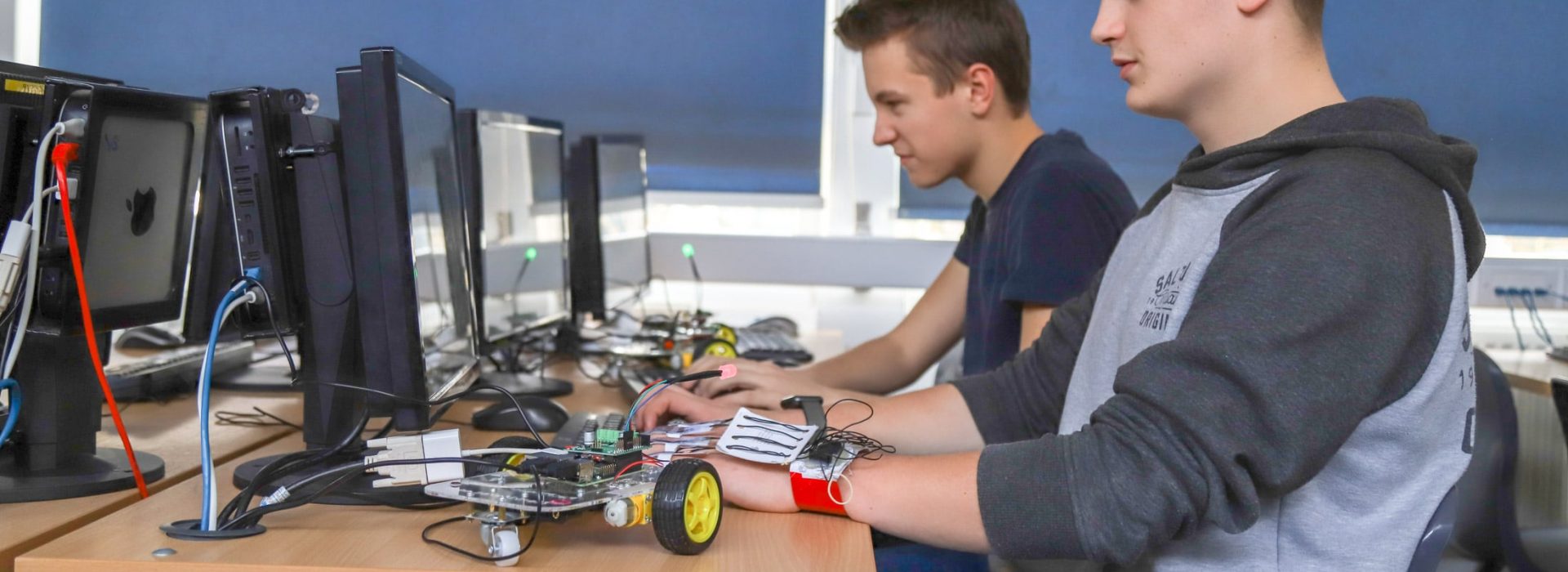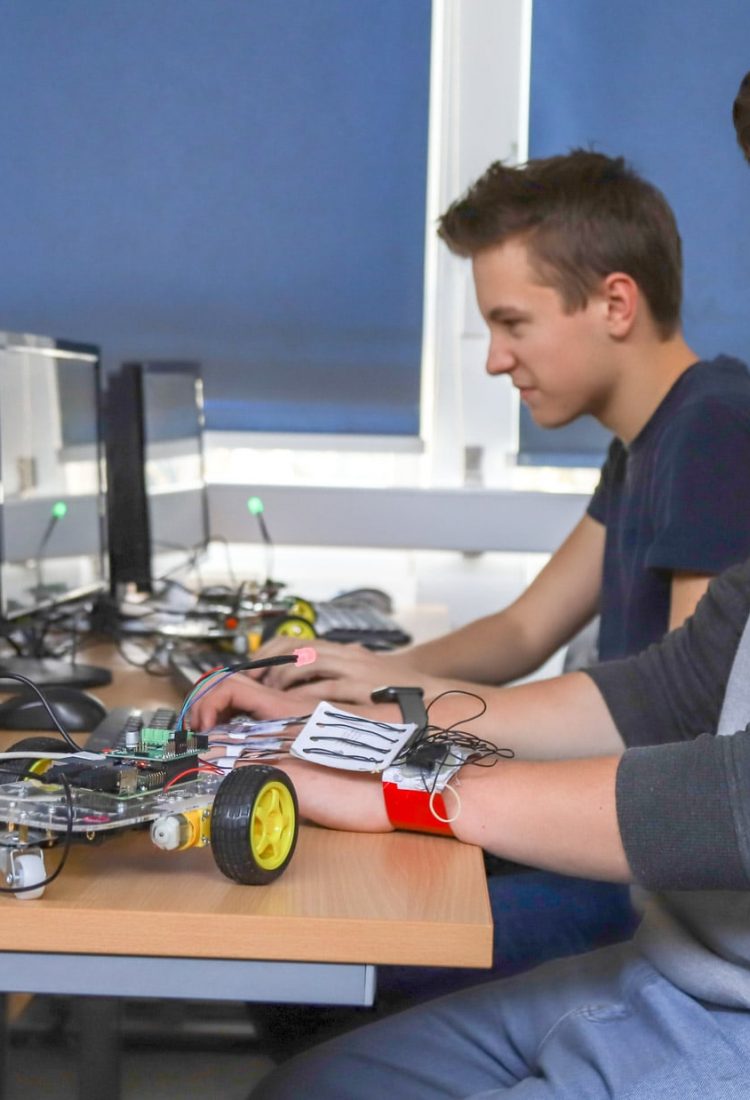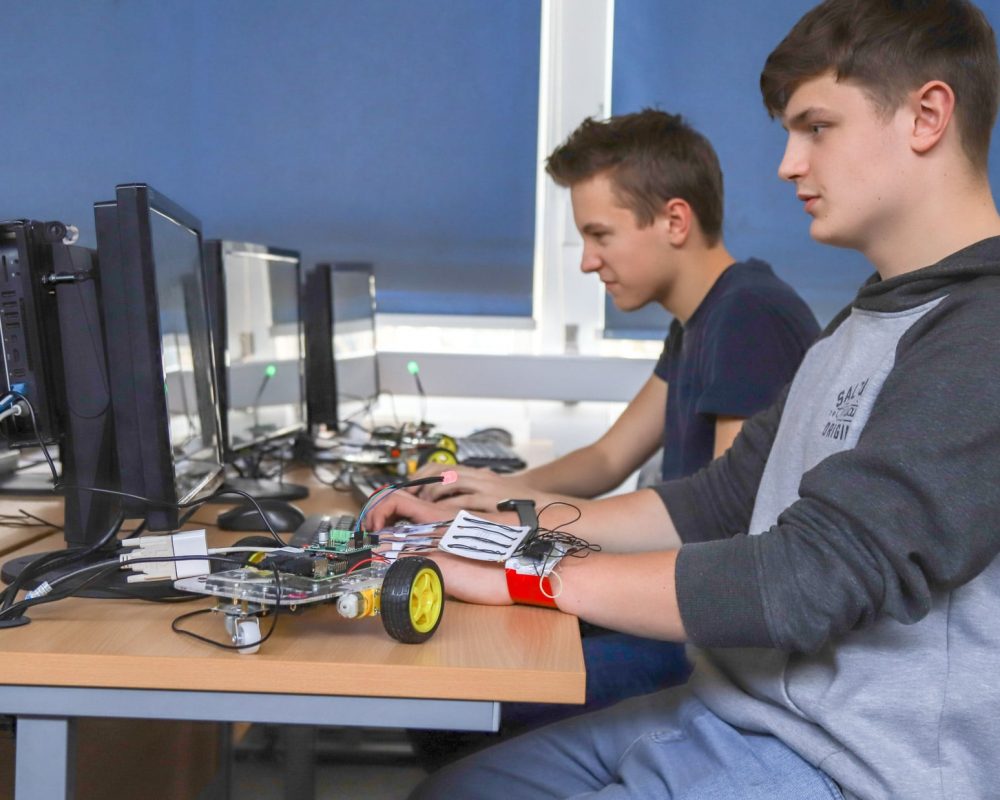Head of Department: Mr P Sutton
Department team member:
- Mr J Edmunds
Studying Computer Science will help you to solve complex, challenging problems, learn about how computers work and how to program them effectively. Computing skills are essential for a wide range of careers and are becoming more vital in today’s society. The future possibilities for students with Computing skills are increasing every day – the computing job that you do in ten years time may not even exist yet! These skills could also enable you to make a positive difference in the world as technological companies have an increasing impact on the way the world works.
At Churston we are committed to making the Computer Science Curriculum an engaging one for all students. The vast majority of Computer Science University students and people working in Computing in the UK are male and we are keen to help correct this imbalance. Computers and their usage can have both a negative and positive impact on the environment and we highlight these impacts throughout our curriculum, to help to make students aware of how their computer use impacts sustainability.
Why are we, your teachers, passionate about computing? We both love programming – being given a problem and being able to work out an effective and efficient solution is very satisfying. It can also be frustrating, as programs do not always work straightaway, but the process of working through a problem builds resilience and tenacity. While computers and computer systems carry out a wide range of complex activities, computers work in a very logical way. Understanding the internals of computers is like opening the box on a big secret and this is great fun.
What we do
- You will acquire knowledge of a variety of topics relating to computers, including networks, the Internet, databases, cyber security, binary, image and sound representation, hardware and software.
- The main skill that students develop is programming, and you will use many programming packers for this, including Scratch, LOGO, Micro:bit Block coding, Small Basic and Python. At A Level, students can choose to learn a new programming language too.
In Years 7 and 8, students complete Computing as part of a carousel of lessons, in one of 4 groups throughout the year. For this reason, the Year 7 and 8 curriculum is divided into topics rather than terms.
Year 7 | Year 8 | |
|---|---|---|
Topic 1 | Micro:bit programming, including programming theory: sequence, selection, iteration, variables, decomposition and debugging. | Scratch programming, including the computational thinking concepts of algorithms, abstraction and decomposition. |
Topic 2 | LOGO programming, including the above programming theory. | Hardware and Software Theory. Input/Process/Output and Storage devices are covered. |
Topic 3 | Network and Internet Research Task. This is completed as an extended homework activity and students have a set of questions to research. A set of website links are provided for this research. | Binary and ASCII Theory. How these are used inside a computer system, including how to convert from binary to decimal and how to convert a letter to binary. |
Topic 4 | Small Basic programming, incorporating the use of abstraction and decomposition. | |
Topic 5 | Sound and Image Representation. This is completed as an extended homework activity. |
Links
- There is a huge range of career opportunities for students with Computer Science skills and qualifications, including games design, website development, database management. The fields of artificial intelligence, 3D printing and the metaverse continue to create new and exciting career options.
- While internet safety is covered elsewhere in the curriculum, issues including data security and personal data protection are referenced in our lessons.
A Micro:bit computer
A design programmed in LOGO and coloured in using Paint


